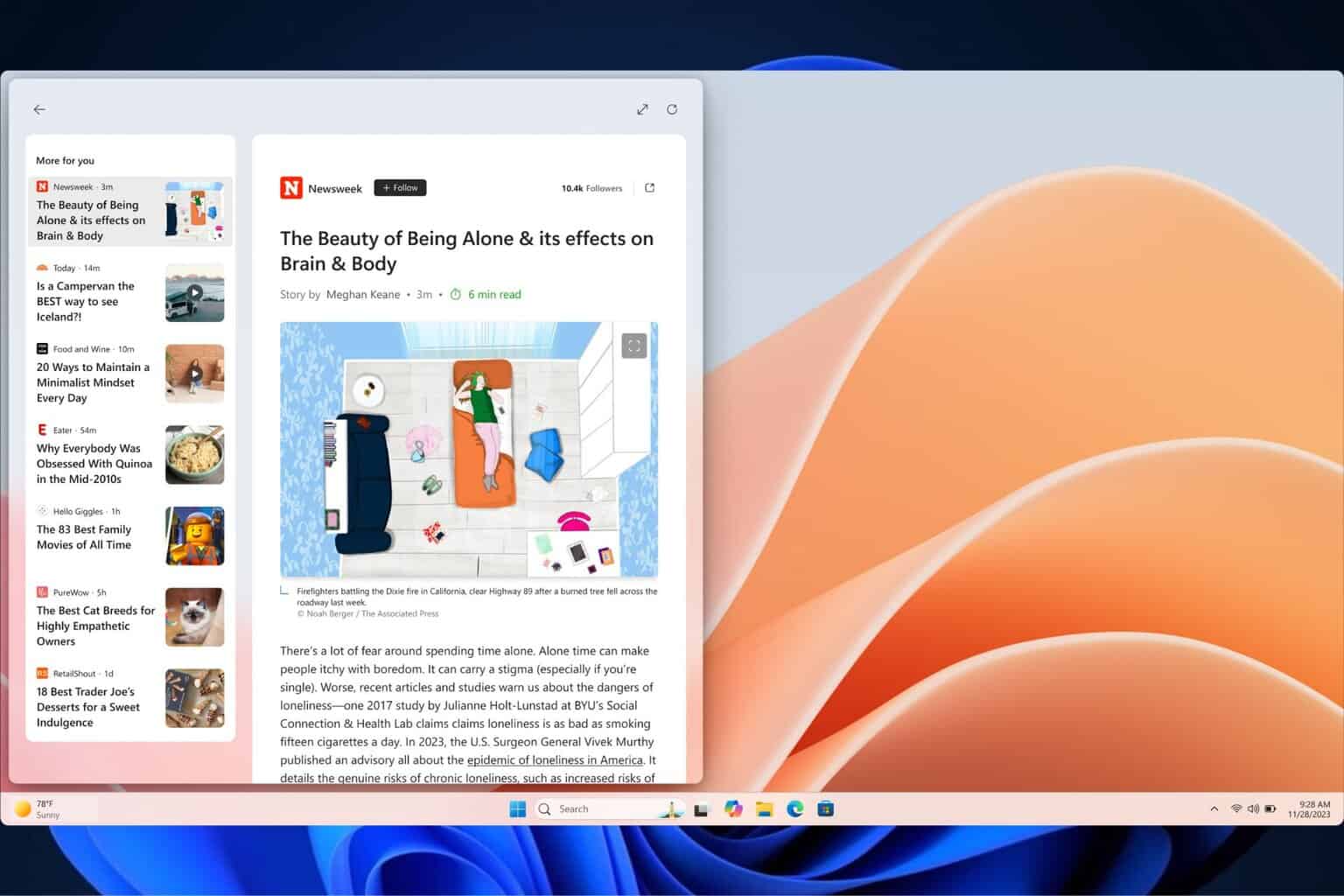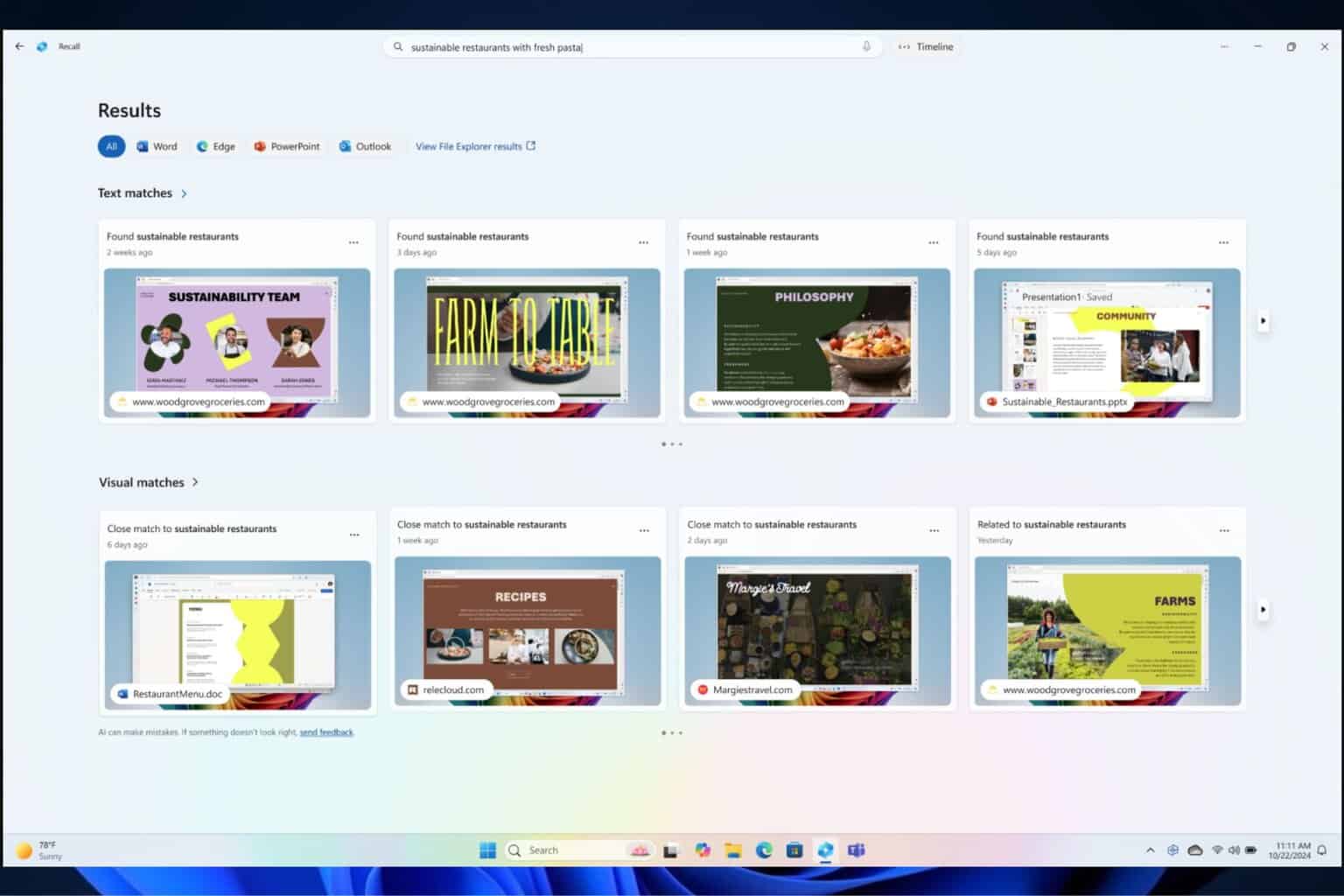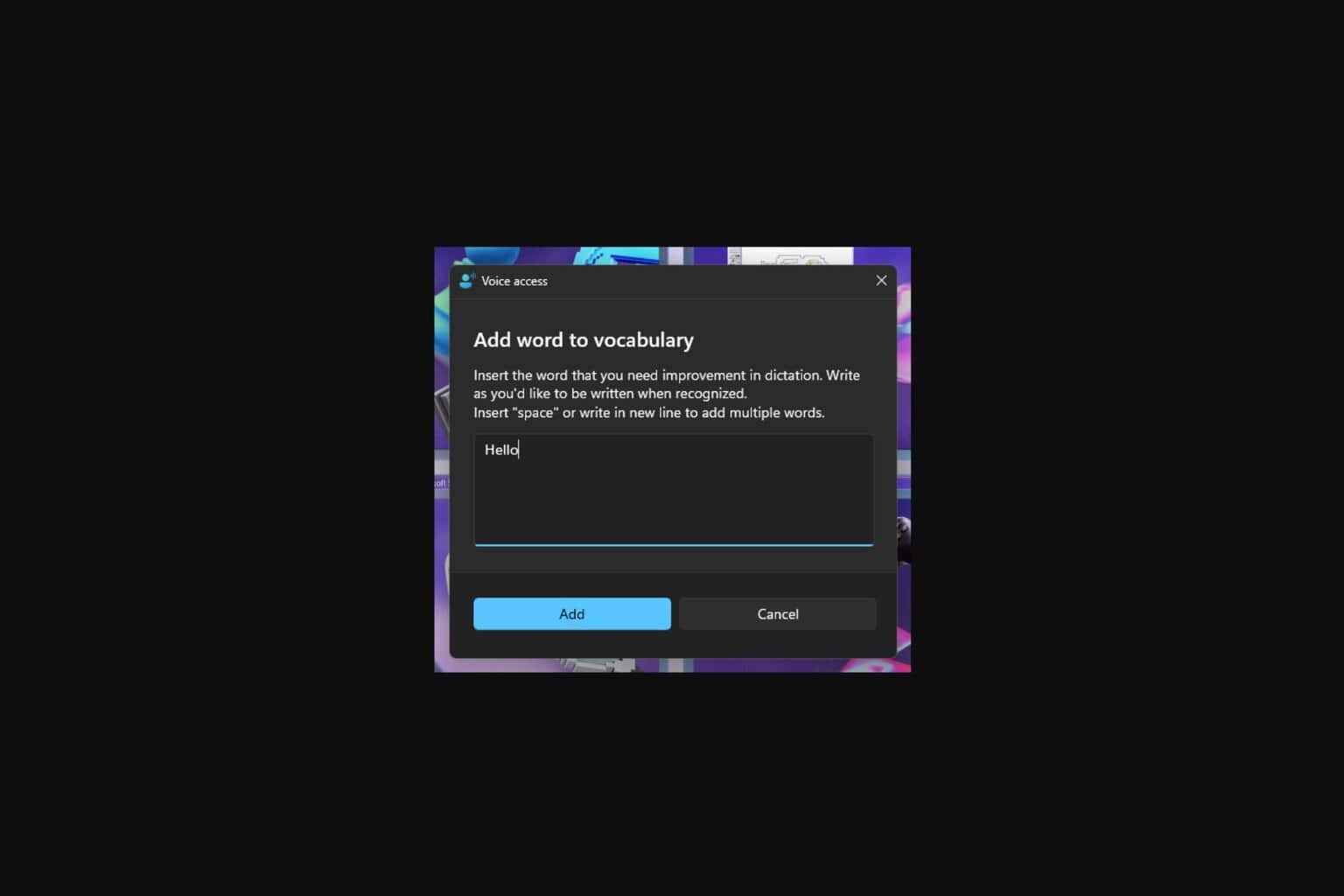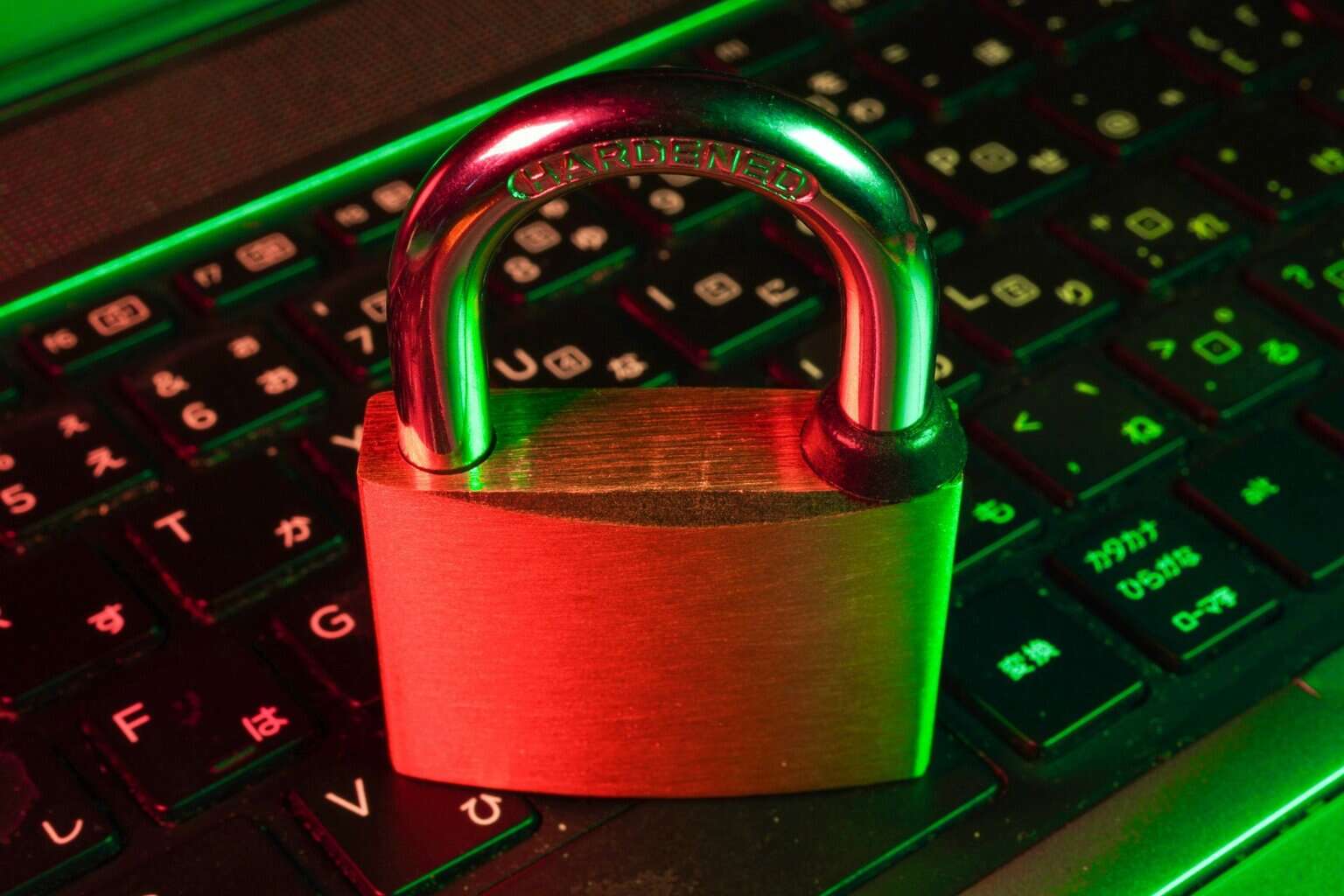What is Dashost.exe & How to Disable it
Disable dashost.exe process via the Task Manager if need be
4 min. read
Updated on
Read our disclosure page to find out how can you help Windows Report sustain the editorial team. Read more
Key notes
- Dashost.exe is a Windows file that manages the pairing process between a PC and various hardware devices.
- Factors such as file location, size, and spelling can help determine whether dashost.exe is safe or whether you should remove it.
- You may disable its process via the Task Manager and remove the file in File Explorer.

Many users inquire about the DasHost.exe process appealing in the Task Manager on their computers. It is necessary to know whether the file is trustworthy for security purposes. Hence, this guide will discuss its meaning and how to disable it.
Likewise, you can check our detailed guide on why exe files are not opening on Windows PC and some fixes for the problem.
What is dashost.exe?
Dashost.exe is a system file published by Microsoft Windows, which stands for Device Association Framework Provider Host. It facilitates connecting and using various hardware devices with your Windows-based computer.
Also, it manages the pairing process between devices, such as mice, keyboards, webcams, printers, and other peripherals.
Furthermore, the executable appears only in Windows Task Manager as a process named dasHost.exe.
Should I remove dashost.exe?
The legitimate dashost.exe file is an essential part of the system and won’t cause any issues with the PC. Though Microsoft itself digitally signs dashost.exe, some viruses or malware can use the same file name to remain undetected. So, the probability that it can cause harm is high if compromised.
However, terminating the dashost.exe process may result in some issues. Hence, removing the file will be based on several factors, such as location, the executable file size, and others below:
- Check the file location – Follow these steps to check if the file is in it’s correct directory:
- Right-click the Start button and select Task Manager from the menu.
- Go to the Details tab and locate the dashost.exe in the Task Manager. Right-click on it and click on Open File Location from the drop-down menu.
- The default file location for dashost is the
C:\Windows\System32 directory - If the opened directory differs from the directory above, it is a malicious file, and you should remove it.
- Check the file size – the frequently occurring file sizes are 69,632 bytes, 64,512 bytes, 70,144 bytes, or, as the case may be, 64,000 bytes. If the size of dasHost.exe exceeds 100Kb, it is not a legitimate file.
- Check the spelling – Many times, viruses and malware disguise using names that are close in spelling to the legitimate files. So, you can further investigate the chance of the file being malicious by checking the spelling differences, such as DassHost.exe, etc.
The factors will help you decide whether to remove the dashost.exe.
How can I disable the dashost.exe?
1. End task for dashost.exe
- Right-click the Start button and select Task Manager from the menu.
- Go to the Details tab. Select the dashost.exe from the list, right-click on it, then click End task from the drop-down menu.
- Restart your PC.
Ending the dashost.exe process on your PC will stop its background activities, stop it from running and mitigate any threats it can cause the system.
You can check our article on what to do if the Task Manager is slow to open or respond on your PC.
2. Remove the dashost.exe file via File Explorer
- Repeat steps 1 and 2 from the solution above.
- Locate the dashost.exe in the Task Manager. Right-click on it and click on Open File Location from the drop-down menu.
- Right-click on the dashost.exe file and delete it.
- Restart your computer and check if its process still runs.
Removing the executable file in File Explorer will annihilate the malicious software.
In conclusion, you can read about exe files deleting themselves on Windows 11 and some steps for fixing the problem.
Also, you may be interested in antivirus software blocking .exe files on the PC and ways to resolve it.
If you have further questions or suggestions, kindly drop them in the comments section.












User forum
0 messages